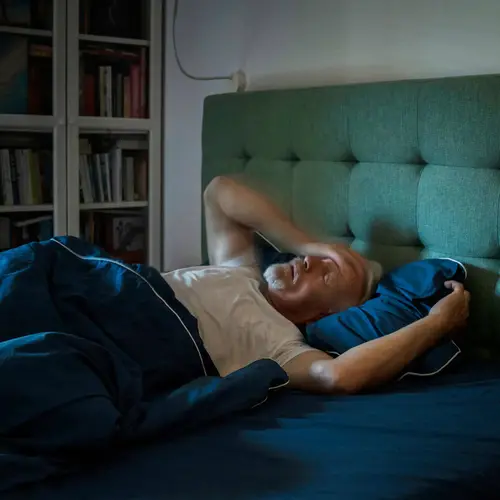Could lack of sleep cause your child to have trouble concentrating at school? Sleep deprivation can make it harder to pay attention or even stay awake during lessons. For students of all ages who don’t get enough restorative sleep, academic performance may take a hit.
How Lack of Sleep Affects Learning
Lack of sleep or just poor-quality sleep is common among students of all ages. But the amount and quality of your sleep plays a big part in how well you do in school. Students who don’t get enough sleep or just don’t sleep well at night often perform poorly in school compared with those who sleep well.
Why? For starters, lack of sleep affects a part of your brain called the prefrontal cortex. This region is responsible for important learning functions like working memory. When you don’t get enough sleep, your brain doesn’t function as well, and you struggle to pay attention and process information.
It’s harder to switch quickly between tasks when you haven’t had enough sleep. You may make more mistakes. You may find it very hard to adjust to different learning environments or lessons throughout the day.
Poor sleep affects mood and behavior, too, which can affect performance in school. It also affects the part of the brain where creative thinking happens. People who don’t get enough sleep can struggle with creative tasks or coming up with new ideas.
Learning Difficulties and Sleep Trouble
Some learning difficulties can cause the same problems at school that lack of sleep does. Attention deficit hyperactivity disorder (ADHD), for example, can make it hard to focus, complete tasks, or pay attention in class.
But what may make it worse is that young people with learning difficulties, such as ADHD, often don’t sleep well to boot. Kids with ADHD are often restless. They may have a hard time settling down to go to bed at night. ADHD medications may also keep kids up.
Mental health issues like depression or anxiety can also cause poor sleep and learning difficulties.
Learning Difficulties and Sleep Disorders
Some children with learning difficulties may have more than just sleep trouble. They could have a sleep disorder.
As many as half of children with ADHD have sleep-related breathing problems, which can wake them frequently or hurt the quality of sleep. Many kids with ADHD have restless legs syndrome (RLS) that keeps them awake at night.
Narcolepsy, though rare in children, often comes with ADHD or symptoms of it. This sleep disorder causes extreme daytime sleepiness that can affect learning. Kids with narcolepsy have trouble paying attention or remembering what they’ve learned. Narcolepsy can also cause kids to be hyperactive or have behavior problems at school that may look like ADHD. As many as 30% of people with narcolepsy also have a diagnosis of ADHD.
Children with dyslexia have a higher risk for sleep disorders like not being able to fall asleep or stay asleep at night. Kids with dyslexia might also be at higher risk for breathing problems while they sleep.
How Your Doctor Can Help
A doctor can do a complete exam to figure out if lack of sleep is causing learning difficulties or if it’s the other way around. They can screen for depression and anxiety, too. They may also look into iron, vitamin, and thyroid levels. These can also affect sleep.
Depending on what the doctor finds, they may do one or more of the following:
Adjust medications. If your child or teen takes stimulants for ADHD, the doctor may adjust the dose or the time of day when your child takes them to improve their sleep.
Refer you to a sleep specialist. If your doctor suspects that your child has a sleep disorder, they can refer you to a sleep specialist. That’s a doctor who can do tests to diagnose sleep disorders and suggest treatment. If your child has a sleep disorder, treating it may help improve their learning difficulties.
Therapy or medications. Older children or adolescents may need cognitive behavioral therapy (CBT) to help them overcome their sleep problems. Rarely, older children need prescription sleep medicine along with therapy. If your child gets a diagnosis of narcolepsy, your pediatrician may prescribe medications.
What Can You Do About Lack of Sleep and Learning Difficulties?
You can also take steps to try to help your child get better sleep. This may help them in school, too.
First, make downtime and sleep priorities. Establish good sleep habits so your student can get enough rest each night. Here are a few tips:
Set a regular bedtime and study hours. Even on nights when your child wants to stay up to study or prepare for a test, it’s important they go to sleep at the same bedtime as always, so they’re refreshed during classes or exams.
Set limits on screen time. Children of all ages, and adults as well, should stop using smartphones or tablets at least 1 hour before bedtime. Put these devices out of reach, so they don’t grab them and start scrolling if they wake up during the night.
Create a calm environment for sleep. Try to make bedrooms cool, dark, and quiet to promote restful sleep.
Get good nutrition and exercise. A healthy diet and regular physical activity can improve sleep and help your child focus at school. Students should cut down on caffeine, too.

